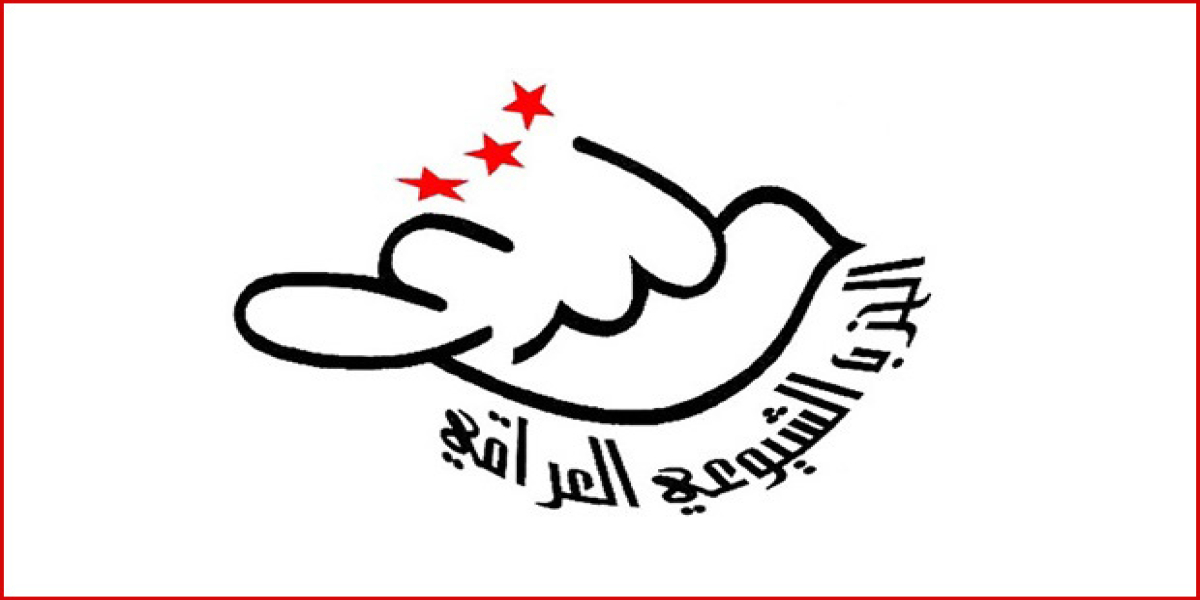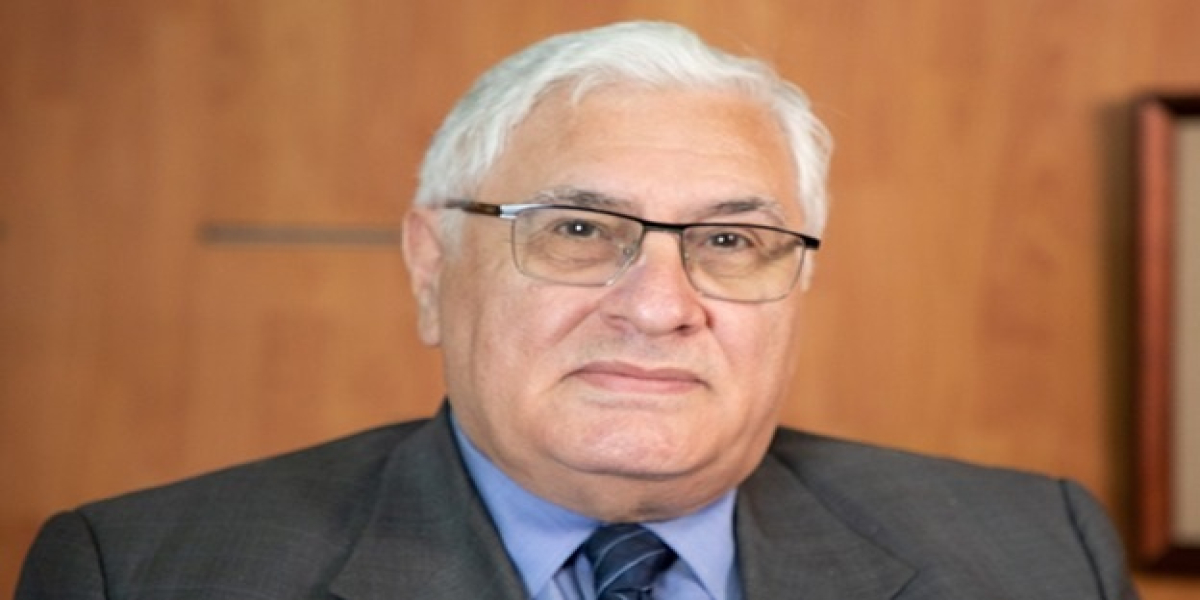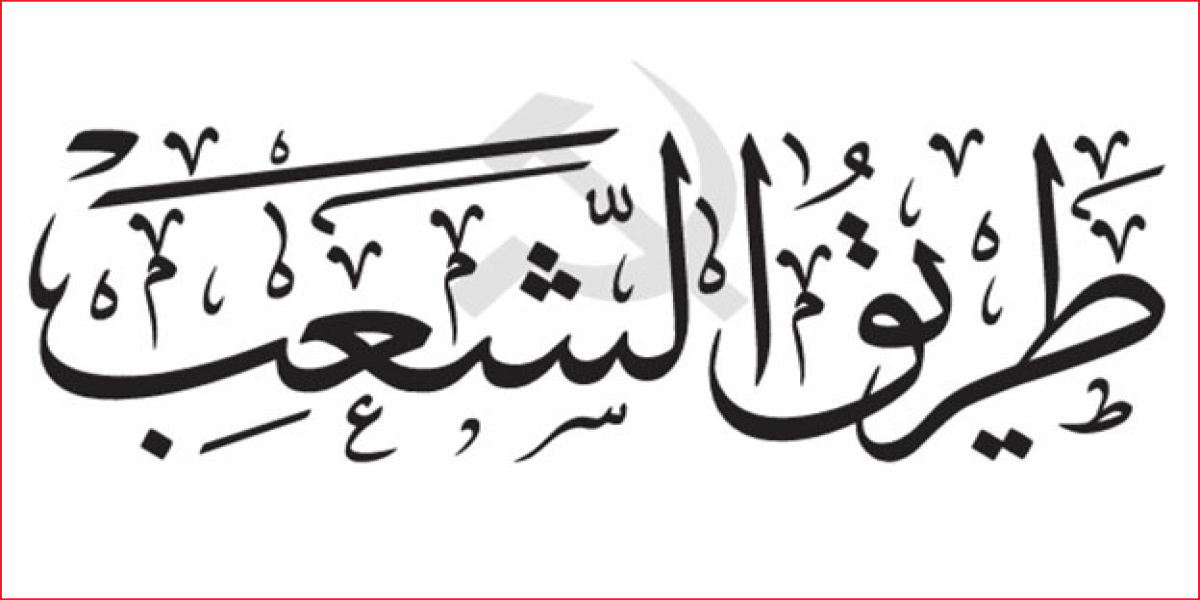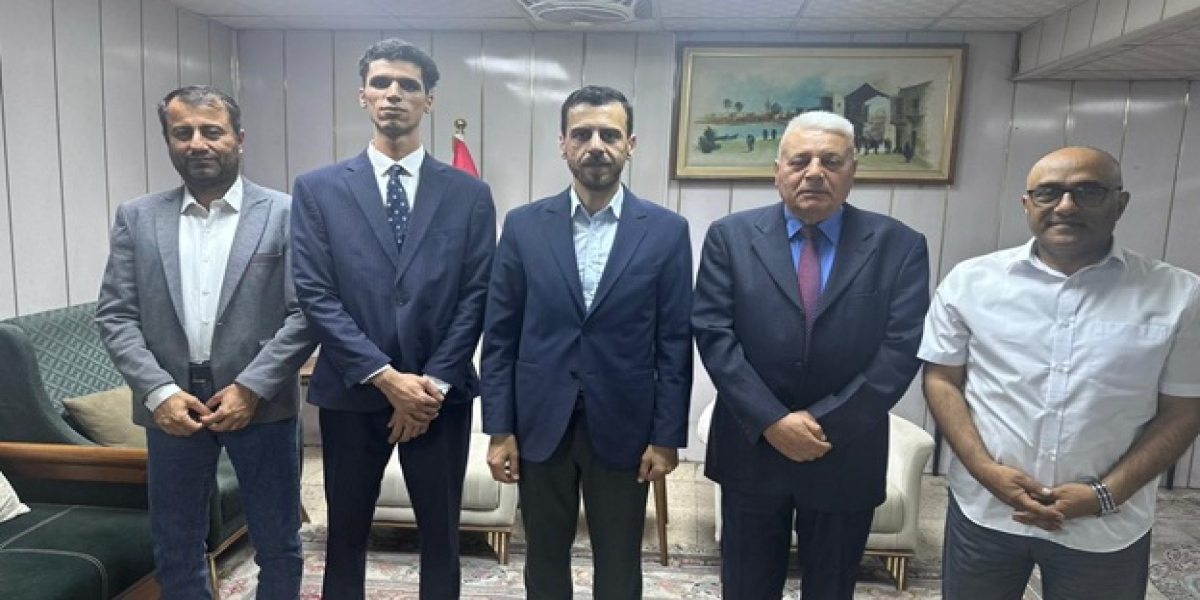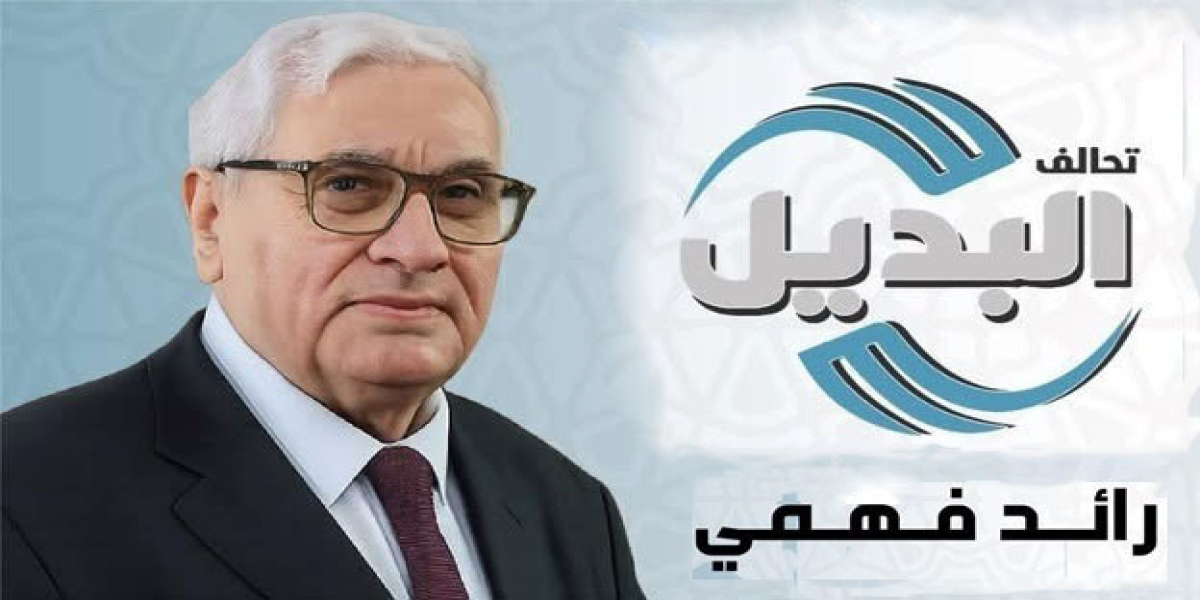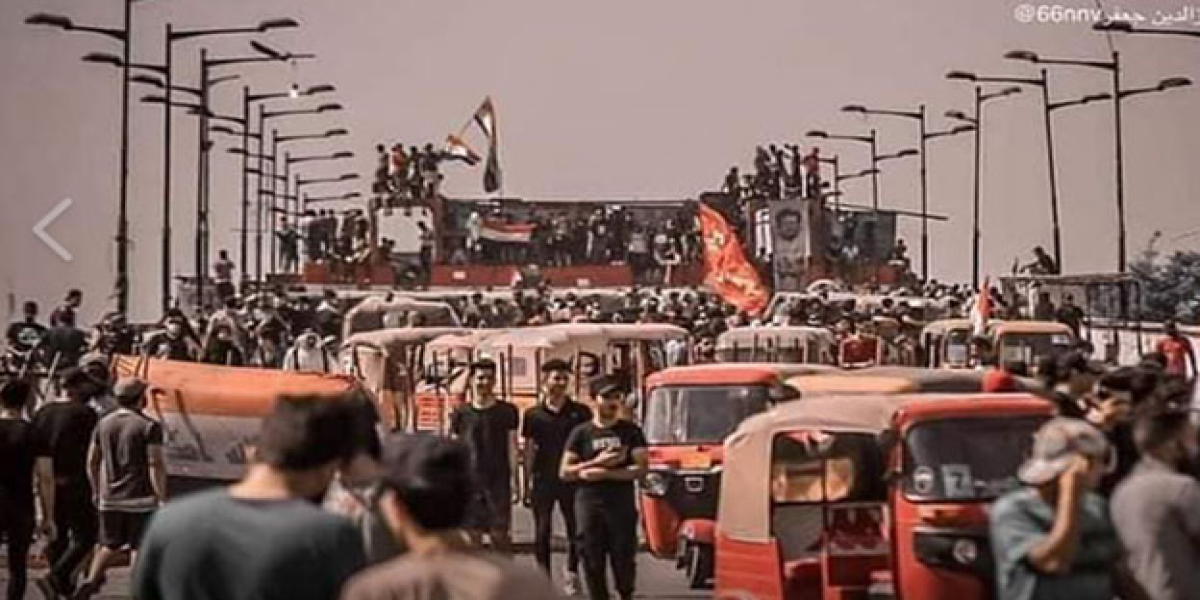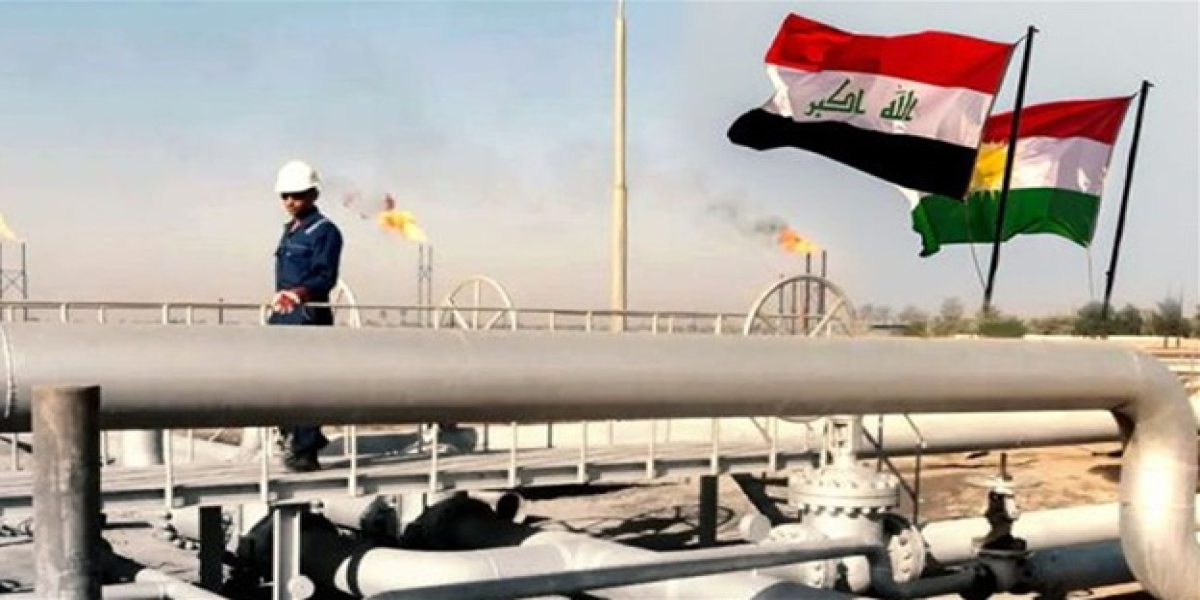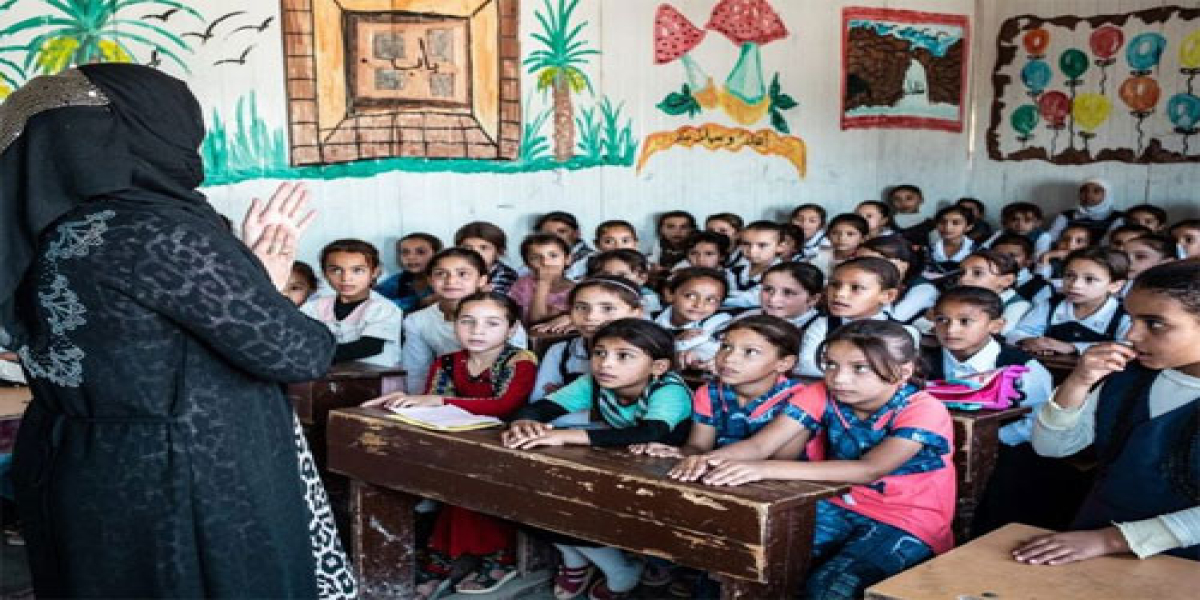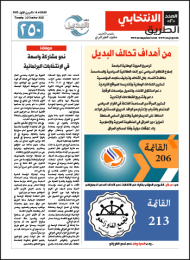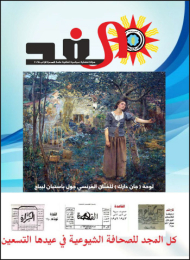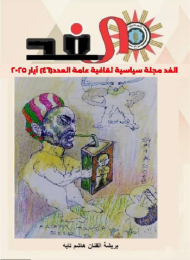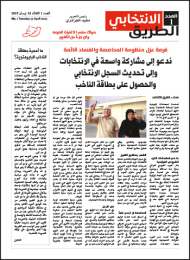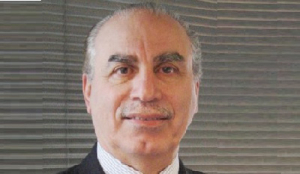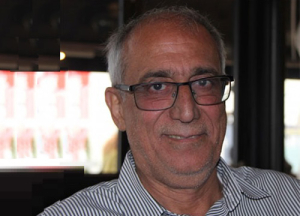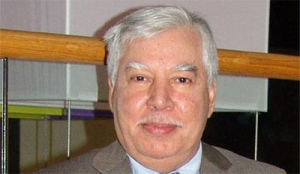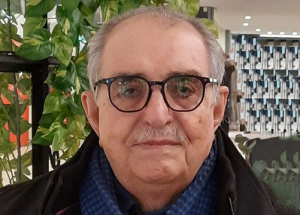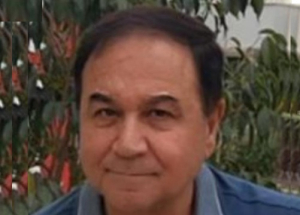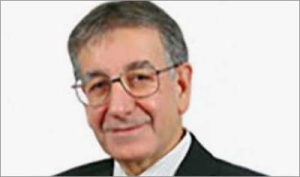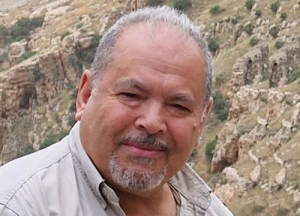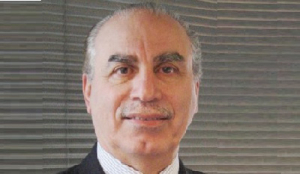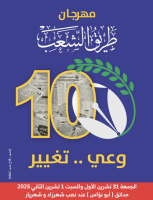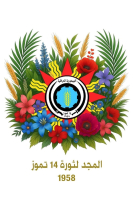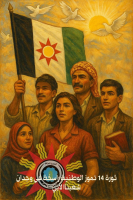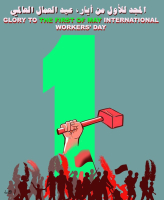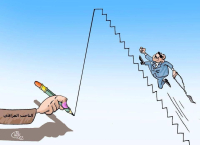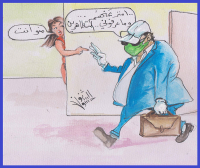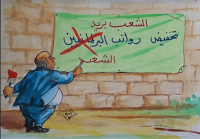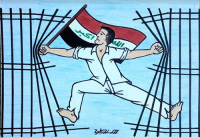- التفاصيل
- المجموعة: English
- الزيارات: 4825
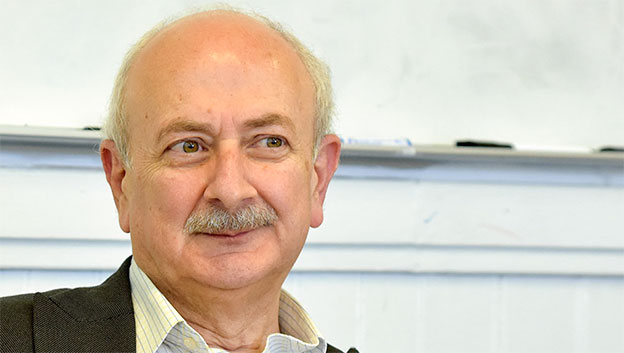
The following is a recent interview with Comrade Salam Ali, member of the Central Committee of the Iraqi Communist Party, published by 'Nameh Mardom', the central organ of the Tudeh Party of Iran, on 28 May 2018. It was also published by the Morning Star on 31 May 2018.
The interview deals with the outcome of the parliamentary elections in Iraq on 12 May 2018, and the political significance of the success achieved by the 'Sairoun' alliance which includes the Iraqi Communist Party, the Istiqama Party which is backed by the Sadrists, and other groups. The alliance contested the elections on an anti-sectarian and anti-corruption platform calling for a democratic civil state based on the principle of citizenship and social justice. It managed to secure the largest number of seats.
A previous interview with 'Nameh Mardom', published on 19 March 2018, dealt with the political situation in the country on the eve of the parliamentary elections, and presented Iraqi CP's analysis and views about the formation of the electoral alliance 'Sairoun' (the Arabic for 'Marching toward Reform').
- The parliamentary election in Iraq a week ago propelled the Iraqi CP to one of the most visible forces in the media not only in Iraq but internationally. What was special to the Sairoun Alliance that attracted the support of those participating in the election?
The Sairoun alliance - a trans-sectarian electoral alli ance - won 54 seats out of 329 in parliament. The victory is the outcome of co-operation between civil democratic activists, including Communists, and the Sadrist movement in the popular mass protests that have continued since July 2015 against the corrupt political system of sectarian-ethnic quota-based power sharing.
The Sairoun Alliance's electoral programme embodied the aspirations of hundreds of thousands of people who were looking for an alternative and an end to sectarian politics that had catastrophic consequences and even threatened the existence of Iraq itself.
Sairoun and its political platform and discourse called for building a civil state based on the principle of citizenship, where all Iraqis are equal irrespective of their ethnic, religious, confessional or ideological affiliations.
Combating corruption - financial, administrative and political - which is endemic in Iraq is also a top priority as are tackling high unemployment, especially among young people, poor education and health and reviving the national industrial and agricultural sectors.
The electoral sloganeering of the ruling political blocs was exposed as empty words that can no longer deceive the people and the shameful record of the ruling elite has long been exposed as about $300 billion of state revenues plundered over the past 13 years.
When the current prime minister Haider al-Abadi took over from his predecessor Nuri al-Maliki in late 2014, he publicly revealed that he inherited empty coffers.
Sairoun presented a concrete plan for combating corruption, that includes enacting a host of legislative, executive and oversight measures and bringing to account the titans of corruption. Reform and rebuilding the state, and providing security and stability, social equality, economic development, defending women's rights and support for culture were also key features of Sairoun's political platform.
One distinguishing feature of the alliance was its emphasis on upholding Iraqi national identity, building state institutions and firmly rejecting foreign interference - both regional and international - in the country's internal affairs.
Ruling blocs have been shamefully subservient to foreign powers - the US, Turkey, Iran and Saudi Arabia - serving their interests at the expense of Iraq's independence and sovereignty, including direct interference in the formation of previous governments.
Importantly, nearly 99 per cent of the candidates fielded by Sairoun were new faces, individuals who had not previously held posts in parliament or government and were not tarnished by corruption and mismanagement. This was in contrast to the "old faces" of the ruling blocs, many of whom were not re-elected.
Thus Sairoun had national and civil character, and was presented to electorate and people as both anti-sectarian and anti-corruption.
- Given that electoral blocs favoured by the Islamic Republic of Iran and the US - Amiri, Al-Maliki and Haidar Al-Abadi - didn't do as was expected by their backers, could this be a starting point to significantly limiting the influence and interference of external regional and global forces in Iraq's affair?
The voter turnout was 44.5 per cent - the lowest since 2006. In 2014, it was 60 per cent.
This is indicative of widespread resentment, disillusionment and disaffection with the corrupt ruling elite and their policies and was particularly clear in areas that had been regarded as strongholds of Islamist parties - urban centres, Baghdad and other provinces in central and southern Iraq.
It is an important feature as it marks a change in political awareness and a movement away from identity-based and sectarian politics.
Thus boycotting the vote by these sections of the population was an expression of resentment - a protest vote.
The State of Law bloc, led by Nouri al-Maliki, was the biggest loser, with its seats reduced from 92 in 2014 to 26 seats in 2018. The second biggest bloc, however, was Al Fateh (Conquest), led by Hadi al-Amiri, with 47 seats. Supported by members of the Popular Mobilisation Units (Hashd al-Shaabi), it sought to capitalise politically on their role in the battle against terrorist Isis. Prime Minister Abadi's bloc, Nasr [Victory] Alliance came third, with 42 votes.
As pointed out above, the ruling groups had opened the door to foreign interference in Iraq's internal affairs, but, despite their electoral losses, they are not expected to give up their dominant positions of power or the enormous privileges easily or voluntarily.
They will seek the support of their external backers in their political manoeuvres in forming the new government. US and Iranian high-level envoys Brett McGurk and Qasem Soleimani visited Iraq soon after the elections attempting to influence this process.
The US and Iran continue to be major players in Iraq and the whole region, along with Turkey and Saudi Arabia.
The recent escalation of tension as a result of Washington's decision to pull out of the Iran international nuclear deal will further complicate the Iraqi political scene and impact on its stability and security.
The Sairoun alliance has openly rejected such blatant interference. It has stressed the need for a strong independent Iraqi national will, coupled with a principled and rational political discourse that would ensure good relations with all Iraq's neighbours based on mutual respect of national independence and sovereignty.
Putting an end to foreign interference requires concrete steps to remedy the fragile internal situation and strengthening the societal fabric and national unity.
- Are the Sadrists really committed to the slogans advocating a civil, non-sectarian, forward-looking democratic and federal Iraq? Muqtada al-Sadr seems to have reinforced his political position through this election and being seen as the de facto leader of Sairoun Alliance, but, as a leader of one of the largest Shia movements, would he be willing or capable to play an effective role in building non-sectarian political system?
On the political level, all the parties of the Sairoun alliance have generally adhered to its programme during the electoral campaign. In the aftermath of the elections, there is close coordination with regard to the next steps, dialogue and negotiations with other blocs.
These negotiations are still in their initial stage and are aimed to explore a common ground regarding the formation of the largest bloc in parliament that would be assigned the job of forming the new government as there was no outright winner with a majority in parliament.
Sairoun, as well as the leader of the Sadrist movement, Muqtada al Sadr, have reiterated their commitment to the election campaign promises. The alliance will not accept a return to sectarian-ethnic quota-based power sharing in the formation of the new government. It must be based on an anti-sectarian and anti-corruption platform, in line with basic tenets of Sairoun's programme.
Agreement on the government programme comes first, before discussing who would be the nominee to the post of prime minister and other details. If these objectives are not achieved then, as already publicly declared, Sairoun will become the main opposition force in parliament.
Its main components and the civil democratic forces will also continue be active participants in the mass protest movement against sectarian politics and corruption, defending human and democratic rights, and mobilising for political reform and change.
- What is your assessment of the Iraqi Communist Party's (ICP) performance in this election? According to news released there were only two successful candidates - openly members of the ICP - out of more than 54 seats won by Sairoun Alliance. What were the key factors in limiting its winning more seats? Did this election coalition help the ICP attract more popular attention and visibility in the Iraqi society?
The party organised a big electoral campaign, inside Iraq and abroad, that had a positive impact on its status among the people and enhanced its political prestige. Party activists managed to reach remote areas and mobilise for the alliance as well as presenting the party views and analysis.
It enabled the party organisations and cadres to get closer to the popular masses, develop close links and build a solid base for future political work and campaigns in defence of fundamental democratic rights and for our national, democratic alternative.
Two party candidates were successful. Comrade Raid Fahmi, the secretary of the central committee, came second in Baghdad and Haifaa al-Amin came third in Thi Qar province in the south. Other party candidates were unfortunately unsuccessful despite an effective election campaign. There were 58 party candidates in 14 provinces.
Initial evaluation and assessment of the party performance and its election results indicate that the overall number of votes for its candidates has increased in comparison to 2014. A further analysis of the results, by the party leadership and all organisations, will help to identify weaknesses, as well as highlight successes and suggest new initiatives.
This will also include the party media campaign, which worked hard despite limited resources, and had to compete with ruling blocs that own dozens of TV stations and spend vast amounts of money on their publicity campaigns.
As confirmed by independent and civil society monitors, the elections were marred by irregularities and there were also accusations of manipulation of final vote counts by the Electoral Commission. This has taken place despite the introduction of electronic vote counting devices to speed up the process and prevent rigging.
Serious questions were raised about the separate "special vote" for members of the armed and security forces who number about 700,000, as well as for Iraqi communities abroad numbering 179,000. It took a week to declare the final results.
Two very important factors adversely affected the whole process. The first is the so-called Sainte-Lague system [it's a highest quotient method for allocating seats in party-list proportional representation]. Despite a big campaign by civil democratic forces to amend it, the parliament - dominated by the ruling blocs - kept the same formula with a high divisor of 1.7 [that sets a high threshold for allocating seats]. The second, is the fact that the Electoral Commission itself was set up on the basis of the sectarian-ethnic quota-based system.
It is therefore one of the priorities of the Sairoun alliance, and of its agenda for a new government, to reform the whole electoral system including the electoral law.
- How do you evaluate Ayatollah Sistani's actions and role in this election?
The role of the Shiite religious leader Ayatollah Sistani has been positive. Long before the elections he distanced himself from the corrupt politicians in power and on several occasions declared, through his official spokesmen, his support for the just demands of the peaceful protestors in their demonstrations in Baghdad and other provinces across Iraq, against corruption and poor services.
He also refused, in recent months, to receive any of the leading political figures of the ruling blocs at his house in Najaf - as a sign of his disapproval of their policies.
It is noteworthy that the message from Ayatollah Sistani, before the elections, that "He who was tried should not be tried' was interpreted by his followers as advising them not to re-elect corrupt rulers.
He also stated that it was up to Iraqi citizens to decide to vote or not. On previous occasions he had preached that it was the duty of every Iraqi to vote, which was used by Islamist parties as a pretext to mobilise voters and legitimise themselves as defenders of the sect against its presumed enemies.
- Why was Sairoun successful and how has the experience of building alliances for election purposes affected the deep sectarian divide in Iraq?
In addition to the factors contributing to the success of the Sairoun Alliance mentioned above, it was effectively the only new development in political alliances before the elections on May 12.
All the other blocs were a product of previous alliances of sectarian and ethnic identities. Some even attempted to camouflage their real identity by adopting civil titles and slogans.
Sairoun was also able to maintain its unity while other blocs suffered splits and fragmentation.
It can be said that this trans-sectarian approach has been a unique development in an otherwise bleak political landscape. The fact that it actually emerged from the mass protest movement adds to its political significance, as a grassroots dynamic in the formation of alliances.
It has enhanced an all-encompassing Iraqi national identity and contributed to rebuilding Iraq's national unity.
- Based on this coalition experience, would the Iraqi Communist Party consider continuing cooperation or further joint activities with the Sadrists and other coalition members and, if so, on what platform?
The party will continue to work with the Sadrist movement and other members of the Sairoun Alliance on the basis of its programme which has adopted and clarified the demands of popular protest movement. It also converges with the party's national democratic programme that calls for putting an end to the system of political sectarianism and establishing a democratic civil state based on the principle of citizenship and social justice.
Achieving this objective requires new forces and alliances that can bring about a real change in the balance of forces. Therefore, the success of Sairoun, as a big trans-sectarian bloc of a national and civil character, is a first step in the struggle to break the existing monopoly of political power.
The party will also continue to work with the Democratic Current movement all other civil and democratic forces.
* * * *
- التفاصيل
- المجموعة: English
- الزيارات: 4035

Bewohner armer Stadtteile, wie hier in Sadr City in Bagdad, wählten massenweise das Wahlbündnis Sariyun.
27.5.2018
Am 19. Mai überraschte die Unabhängige Wahlkommission (IHEC) im Irak mit den endgültigen Ergebnissen der Parlamentswahlen. Sieger der Wahl, die bereits am 12. Mai stattfand, war mit 54 Mandaten das Bündnis Sayirun (Vorwärtsmarschieren) aus Sadristen und Kommunisten Prognosen vor der Wahl hatten Sayirun bestenfalls auf dem dritten Platz gesehen. Nun bildet Sayirun die stärkste Fraktion im irakischen Parlament.
Die Irakische Kommunistische Partei (IKP) kehrte mit zwei Sitzen ins Parlament zurück. In der Hauptstadt Bagdad wurde der Vorsitzende der Partei Raid Fahmi ins Parlament gewählt. Das zweite Mandat für die IKP ging an Haifaa al-Amin in Thi-Quar, im Süden des Irak.
Auf Platz zwei folgt mit 47 Mandaten die Liste Fatah (Eroberer), ein Bündnis dem Iran nahestehender schiitischer bewaffneter Organisationen um Hadi al-Ameri. Im Irak sind sie als “Volksmobilisierungseinheiten" bekannt. Der amtierende irakische Regierungschef Haidar al-Abadi konnte mit seiner Liste Nasr (Sieg) lediglich 42 Sitze holen. Auf den vierten Platz kam die Liste "Rechtsstaat" des ehemaligen Ministerpräsidenten Nuri al-Maliki, der ebenfalls dem Iran nahe steht. Viele Iraker*innen machen al-Maliki für die Verschlechterung der Lage im Land verantwortlich. Er regierte zwischen 2006 und 2014.
Das Wahlbündnis »Sayirun«
Die 10. Nationalkonferenz der IKP am 3. Dezember 2017 in Bagdad beschloss die Gründung einer breiten demokratischen und laizistischen Koalition, ließ aber die Tür offen für eine breitere nationale Allianz.
Die Partei bemühte sich zunächst, eine „Allianz der laizistischen und demokratischen Kräfte“ (A.C.D.P) aufzubauen. Sie trägt den Namen „Fortschritt“ und umfasst außer der IKP mehrere laizistische Parteien. Dann reagierte jedoch die vom Geistlichen Moqtada al-Sadr unterstützte Parteiformation “Nationale Einheit“ („al Istiqama“) auf den Appell zur Gründung einer breiten nationalen und religiöse Grenzen überschreitenden Allianz.
Die IKP entschied sich für eine Zusammenarbeit in dem Bündnis „Sayirun“ in dem neben der IKP die irakisch islamische Nationalbewegung „al Istiqama“ und drei weitere laizistische Parteien zusammenwirken. Die Partei „al Istiqama“, die sich auf die „al-Sadr-Bewegung“ stützt, genießt breite Unterstützung in der gesamten irakischen Gesellschaft, insbesondere bei den armen schiitischen Bevölkerungsschichten. Auch die seit drei Jahren populäre Protestbewegung Koordination der Ausschüsse des laizistischen Koordinierungskomitees ist dabei, mit den Kommunist*innen und Sadristen zusammenzuarbeiten.
Sayirun stellt soziale und politische Forderungen und könnte damit dem Land eine neue Perspektive geben. Es ist die erste Allianz dieser Art seit dem Sturz der Diktatur, die mit Unterstützung breiter Bevölkerungsschichten agiert.
Sayirun ist ein Projekt des Wandels, der Reform und des Aufbaus. Mit diesem Bündnis könnte erreicht werden, dass die beteiligten Gruppen gemeinsam vereinbarte Ziele anstreben.
Den linken und fortschrittlichen Kräften in Europa fällt es leichter, die Situation im Irak zu durchschauen, wenn sie davon ausgehen, dass sich dort zwei Lager in einem heftigen politischen und gesellschaftlichen Konflikt gegenüberstehen: das Lager der Reform und des Wechsels auf der einen sowie das Lager der ethnischen, religiösen und Stammes-Quotierung als auch der Korruption auf der anderen Seite. Nur wenn es gelingt, in den Block der Quotierungen einzudringen und mit moderaten Kräften zusammenzuarbeiten, ist es möglich, die derzeitigen Machtverhältnisse zu verändern.
Sayirun bietet die Möglichkeit, den Konflikt zwischen den Säkularen und dem Islam zu umgehen, das Nationale zu fördern und mit der Kultur des Entweder-Oder zu brechen. Sayirun ist ein wichtiger Schritt, um die auf Quoten basierende Hegemonie der Wahlkommission, das undemokratische Wahlgesetz und den Mechanismus der ungerechten Verteilung der Mandate zu überwinden.
Das macht „Sayirun“ zum Alptraum islamistischer Extremisten und sorgt dafür, dass deren Argumente, Verschwörungen und Behauptungen, sie seien die Einzigen, die gegen den Terrorismus kämpfen, ins Leere laufen. Die islamistischen Extremisten führen unter Einsatz gewaltiger Finanzmittel und mit Hilfe der großen Medien eine verbitterte Kampagne gegen die Allianz und deren zwei Hauptkomponenten, die kommunistische Partei und die Anhänger*innen Moqtada al-Sadrs.
Die neue Regierung
Der Dialog zwischen den Siegerlisten führte bisher zu keinem Ergebnis. Es gibt zwei konkurrierende Lager. Auf der einen Seite Sayirun, Nasr (Sieg) und einige Gruppen, die mit ihrem gemeinsamen Projekt einverstanden sind, auf der anderen Seite Fatah (Eroberer) und "Rechtsstaat". Letztere wollen das bestehende politische System beibehalten.
Zunächst konzentriert sich „Sayirun“ auf das Programm und nicht darauf, wer Ministerpräsident wird. Solche Details werden später entschieden. Generell sollte auch die Regierung die Vielfalt ausdrücken. Programmatische Verpflichtungen muss sie aber eingehen. Außerdem muss sich die Auswahl der Minister nach den Fähigkeiten und Kenntnissen der Kandidaten richten. Wenn eine solche Richtung nicht erkennbar ist, wird Sayirun in die Opposition gehen. Denn nur wenn eine Regierung auf dieser Grundlage gebildet wird, kann das Quoten-System überwunden werden.
Sayirun fordert außerdem, dass der Schattenstaat, der sich in den Sicherheitsorganen und anderen staatlichen Institutionen parallel eingenistet hat, aufgelöst wird.
Die große Herausforderung
Das gegenwärtige politische System des Irak ist gescheitert. Nichts von dem, was sich die Iraker*innen nach dem Regimewechsel im April 2003 erhofften, wurde erreicht. Eine echte demokratische und laizistische Alternative zur früheren Diktatur wurde verhindert. Stattdessen wurde versucht, erneut ein repressives, totalitäres Regime – sei es stammesbezogen, religiös, nationalistisch oder militärisch - aufzubauen. Dazu kommt die soziale, wirtschaftliche und politische Verwüstung, die der Irak von der zusammengebrochenen Diktatur ererbt hat. Diese Diktatur unterwarf alle politischen Kräfte außerhalb ihres Unterstützerkreises einer breit angelegten und vielseitigen Unterdrückung. Sie richtete sich insbesondere gegen Kommunist*innen und andere demokratische Kräfte.
Vom 1. bis zum 3. Dezember 2017 fand in Bagdad der 10. Kongress der IKP unter der Losung, "Für den Wandel zu einem demokratisch-bürgerlichen Bundesstaat und sozialer Gerechtigkeit" statt. Der Kongress arbeitete die Idee des Übergangs zu einer demokratischen Alternative aus.
Diese Veränderung kann nur durch den Aufbau eines alternativen politischen Systems erreicht werden, das mit dem Machtmonopol bricht, auf sekundären Identitäten beruht und dieses reproduziert. Die demokratische Alternative soll den Wiederaufbau der Ökonomie, der Gesellschaft und des Staates auf einer neuen Basis ermöglichen. Der Staat soll auf dem Prinzip der Staatsbürgerschaft mit gleichen Rechten und Pflichten für alle Bürger*innen fußen. Er soll niemanden auf Grund des Geschlechts, der ethnischen Zugehörigkeit, der Hautfarbe, der Religion, des Glaubens, der Meinung, des gesellschaftlichen oder wirtschaftlichen Status diskriminieren. Er soll ein Staat der Institutionen und des Rechts sein, der den Bürger*innen ein würdiges Leben in sozialer Sicherheit und sozialer Gerechtigkeit garantiert. Er soll politische und gesellschaftliche Demokratie ermöglichen und beides miteinander verbinden.
Um diesen demokratischen Bundesstaat zu erreichen, ist ein entschiedener Kampf zur Veränderung der politischen Kräfteverhältnisse zu Gunsten des Projekts der Veränderung und seiner Unterstützer*innen erforderlich. Diese kann erreicht werden durch eine starke demokratische Bewegung, durch die Bildung religionsübergreifenden Allianzen und die Mobilisierung eines breiten Spektrums von Kräften, die Reformen und Veränderung unterstützen, wobei der Kampf gegen Korruption ein Hauptfaktor in dieser Auseinandersetzung bleibt.
25/05/2018
Rashid Ghewielib ist Journalist und Mitglied der Irakischen Kommunistischen Partei.
- التفاصيل
- المجموعة: English
- الزيارات: 5208
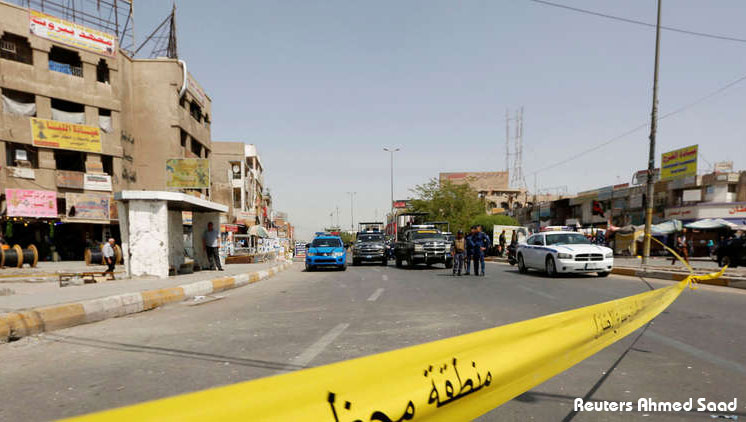
The headquarters of our Iraqi Communist Party at Andulus Square, in central Baghdad, was targeted this evening, Friday 25th May 2018, with two homemade bombs thrown into its garden, without causing any casualties except for some material damage from the blast.
We have not doubt that this cowardly attack came in response to the role played by the party in the ongoing efforts to form the new federal government on the basis of a political reform program, away from sectarian and ethnic quota-based power sharing, after the alliance "Saeroun" achieved a big victory in the recent elections, coming first among competing electoral lists. It was a shock to the corrupt who are clinging on to power to the extent of committing heinous crimes, to undermine the resolve of those who are demanding reform and change.
This cowardly criminal act, and any other treacherous tactics, will not be weaken the resolve of Communists and the democrats, who will continue to march forward whatever the sacrifices are, in the interest of the people, towards building a state of citizenship, a democratic civil state and social justice.
Shame and disgrace to the perpetrators of this treacherous act and to the politically and morally bankrupt who are behind them.
Political Bureau
Iraqi Communist Party
Friday, 25th May 2018
- التفاصيل
- المجموعة: English
- الزيارات: 3312

Seit dem Sturz Saddam husseins vor 15 Jahren sei das Ziel der irakischen Kommunistischen Partei, KP Irak, einen demokratischen, föderalen und einheitlichen Staat aufzubauen, sagt Rashid Ghewielib, der seit 1974 Mitglied der Partei ist. Ein Gespräch über die politische Zukunft des Irak nach der Wahl.
Interview Von Carl Melchers
Wie ist zurzeit die Situation in Bagdad?
Die Wahl verlief recht ruhig, aber die Aufkündigung des Atomvertrags zwischen den USA und Iran durch Präsident Trump besorgt die Menschen hier sehr. Ich glaube zwar selbst nicht, dass es zu einem Krieg kommt, auch wenn das oft gesagt wird. Aber wenn es doch zu einem Krieg zwischen Iran und den USA kommen sollte, wird das auch Konsequenzen für den Irak haben. Iran ist unser größter Nachbarstaat und wir teilen eine lange Grenze miteinander. Wenn dort etwas passiert, hat das Auswirkungen auf die Wirtschaft, die Sicherheit und das ganze tägliche Leben im Irak.
Welchen Einfluss hatte diese Stimmung auf die Wahlen?
Politisch gesehen haben die Listen und Fraktionen, die auf der Seite des Iran stehen, versucht, die US-amerikanische Bedrohung zu nutzen, um den Zusammenhalt gegen die USA zu beschwören. Praktisch schwächt diese Situation die Position politischer Gruppen, die versuchen wollen, die drängenden sozialen Probleme des Irak anzusprechen.
Aber nun sieht es so aus, als sei das Wahlbündnis, zu dem auch die KP Irak gehört, als stärkste Kraft aus den Wahlen hervorgegangen. Was sind die politischen Ziele Ihrer Partei?
Unsere politischen Ziele sind seit dem Sturz Saddam Husseins immer die gleichen geblieben. Wir wollen eine Alternative zum Status quo nach 15 Jahren gescheiterter Staatsbildung. Wir wollen ein Ende der religiösen und ethnischen Teilung der Gesellschaft in Sunniten, Schiiten und Kurden. Kurz gesagt, wir wollen einen demokratischen, föderalen und einheitlichen Irak aufbauen, in dem soziale Gerechtigkeit eine zentrale Rolle spielt.
Welche Bedeutung hat die KP Irak überhaupt in der irakischen Politik?
Die irakische KP ist die älteste politische Partei im Land. Sie wurde 1934 gegründet und hat historisch eine wichtige Rolle gespielt. Die KP ist auch heute noch die größte organisierte Partei von Linken und Laizisten im Irak, und sie hat Ortsgruppen im gesamten Land. Sie ist aber auch eine der wenigen Parteien, die wirklich im klassischen Sinne eine Partei sind. Sie arbeitet mit Programmen, Statuten und Versammlungen. Als kommunistische Partei setzt sie sich aus Mitgliedern aller ethnischen und religiösen Gruppen des Irak zusammen, und zwar nicht nur aus den drei großen Gruppen, sondern auch aus Christen und anderen Minderheiten. Sie ist somit wirklich eine Partei für alle Iraker.
Wie sieht es bei den anderen Parteien aus?
Die meisten großen politischen Kräfte im Land definieren sich religiös oder ethno-nationalistisch oder werden von Familienklans bestimmt. Parteien, die auf einer wirtschaftlichen und sozialen Zielsetzung basieren, gibt es kaum.
Wie steht es nun um die Kräfteverhältnisse?
Die demokratischen Kräfte sind eine Minderheit. Das hat seinen Grund in der irakischen Geschichte. Die linken und liberalen Kräfte waren unter Saddam Hussein die Hauptopfer der politischen Verfolgung. Ihre politischen Strukturen wurden zerstört.
Saddam Hussein wurde vor 15 Jahren durch die US-Invasion gestürzt. Was bedeutete das aus derzeitiger Sicht?
Der Sturz des alten Regimes brachte große gesellschaftliche Veränderung, aber auch viel Zerstörung. In den siebziger Jahren gab es keinen Analphabetismus mehr im Irak, die Universitäten waren vorbildlich. Inzwischen gibt es etwa fünf Millionen Analphabeten, das Bildungssystem ist am Boden. Die Gesellschaft ist ethnisch und religiös geteilt. Die religiösen Minderheiten, die früher einen wichtigen Teil der Gesellschaft ausgemacht haben, sind so gut wie verschwunden – Christen und Yeziden gibt es kaum noch. Aber auch wir haben es als Linke, Laizisten und Demokraten seit 2003 nicht leicht.
Warum?
Die drei großen ethno-religiösen Blöcke, Schiiten, Sunniten und Kurden, teilen sich durch ein Quotensystem die ganze Macht im Staat. Sie haben ein in der Verfassung nicht vorgesehenes System geschaffen, wonach bis in die kommunale Verwaltung gezählt wird, wie viele Sunniten, Schiiten oder Kurden in einer Gegend wohnen, und nach diesem Proporz wird die Verwaltung besetzt. Wer, wie die linken und liberalen Parteien, nicht zu diesen Blöcken gehörte, hatte keine Chance, da auch Parlamentssitze nach dem Quotensystem besetzt wurden. Dieses System hat kein funktionierendes Gesundheitssystem, keine stabile Wirtschaft oder soziale Sicherheit produziert, und nach 15 Jahren haben viele Menschen die Nase voll davon. Der Irak verkauft sein Öl, während alles, was die Leute brauchen, aus den Nachbarländern importiert wird. In den siebziger Jahren war der Irak diesen Ländern in der industriellen Entwicklung weit voraus. Die Wasser von Euphrat und Tigris haben die älteste Zivilisation der Menschheit hervorgebracht, zurzeit importiert der Irak Trinkwasser aus Saudi-Arabien, einem Land, das größtenteils aus Wüste besteht.
Die KP Irak hat sich einem Wahlbündnis angeschlossen, zu dem auch die Kräfte um den schiitischen Kleriker Muqtada al-Sadr gehören. Wie kam es dazu?
Die Bewegung al-Sadrs ist keine Partei, sondern eine breite Volksbewegung. Die Basis bilden die Armen, die Schiiten. Sie leben in einem Milieu, in dem die Menschen sehr eng an ihren Imam gebunden sind und ihm theologisch und politisch folgen. In seiner kurzen und bewegten Geschichte hat al-Sadr Dinge getan, die unseren Vorstellungen ganz und gar widersprechen. Im Irak haben die politischen Kräfte und Strömungen nach 2003 oft von null angefangen. Es gab keine Erfahrung innerhalb staatlicher Institutionen, dafür aber einen fast sofort einsetzenden Bürgerkrieg. Seitdem hat sich aber auch viel verändert.
Inwiefern?
Das hat ganz zentral mit der Reaktion der al-Sadr-Bewegung auf die Protestbewegung von 2011 zu tun, die damals von linken und demokratischen irakischen Kräften ausging. Diese Bewegung war auch von den Erfahrungen der Revolutionen in Tunesien und Ägypten geprägt. Aber der Protest geschah auch angesichts der konkreten Situation im Irak. Es ging um die fehlende Sicherheit für die normale Bevölkerung, die hohe Arbeitslosigkeit und die extreme Korruption. Wer keine Arbeit in Polizei, Armee oder der Verwaltung hat, hat kaum eine Chance. Es gibt keine Industrie mehr, weder in öffentlicher noch in privater Hand. 2015, nach sozialen Protesten in Basra, entstand eine praktische Allianz zwischen den Sadristen und den säkularen demokratischen Kräften. Da hat sich wirklich viel entwickelt, gerade was politische Ziele und Vorstellungen betrifft. Al-Sadr selbst hat seine Leute verpflichtet, bei den Protesten keine Bilder von sich und seiner Familie zu tragen. Statt schiitischer Fahnen und Parolen sollten sie irakische verwenden. Seine Anhänger übernahmen die Positionen der Protestbewegung bezüglich des Quotensystems, aber auch unsere sozialen Forderungen. Das alles taten sie, ohne Bedingungen zu stellen. Außerdem hat sich al-Sadr von den anderen islamischen Parteien und dem Iran gewissermaßen distanziert.
Er ist also eher zu einem Nationalisten geworden. Was ist mit den übrigen politischen Kräften?
Während al-Sadr nun auf eine Linie der Verfolgung der nationalen Interessen des Irak eingeschwenkt ist, verfolgen die anderen großen politischen Gruppen die außenpolitischen Interessen der Nachbarstaaten. Ich war oft im Fernsehen, und wenn ich die extremen Islamisten gefragt habe, was sie auf diesem Gebiet denn nun erreicht hätten, hieß es, sie hätten den IS besiegt und eine Verfassung geschrieben. Das war es aber auch. Wirtschaftlich und sozial haben sie rein gar nichts vorzuweisen. Die Kurden sind da kaum besser. Wann immer man ihre politischen Führer kritisiert, verweisen sie auf den Zusammenhalt gegen die anderen beiden Blöcke. Der schiitische Block reklamiert nun auch den Sieg über den IS für sich. Dabei sind viele Demokraten und Kommunisten ebenfalls in diesem Krieg gegen den IS gefallen. Die herrschenden Kräfte haben ihre Medien, ihre Ressourcen und die Unterstützung aus dem Iran genutzt, um den Kampf gegen den IS zu monopolisieren. Sie verfügen über eine große Zahl von Fernsehstationen, die KP Irak hat nicht einmal eine einzige.
Gibt es eigentlich keine Unterstützung aus dem Rest der Welt für die säkularen irakischen Kräfte?
Finanziell erhalten wir keine Unterstützung von außen. Vor dem Zusammenbruch der Sowjetunion hatten wir gute Kontakte zu kommunistischen Parteien, vor allem zur Sowjetunion, aber auch zu anderen sozialistischen Ländern. Seit 1993 haben wir uns politisch geöffnet. Wir haben zum Beispiel Kontakt zur Linkspartei in Deutschland. Wir finanzieren uns hauptsächlich aus Mitgliedsbeiträgen. Wir sind eine der wenigen politischen Kräfte im Irak, die tatsächlich unabhängig sind und nicht von irgendeinem fremden Staat, sei es von den USA, dem Iran oder einem anderen Land, finanziert werden.
- التفاصيل
- المجموعة: English
- الزيارات: 4409
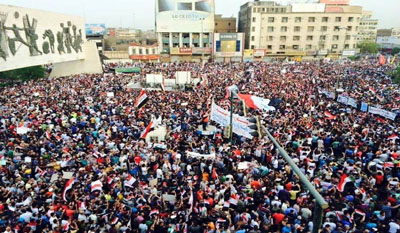
The following statement was issued by the Political Bureau of the Iraqi Communist Party after the parliamentary elections which took place on 12th May 2018:
The general parliamentary elections ended yesterday. On this occasion, we congratulate our people on the completion of this constitutional right, which is another step on the path of consolidating democratic practice and achieving a peaceful transfer of power, according to the voter’s free will.
It is gratifying that what took place on 12th May, and before it in the special vote for the armed forces, passed through peacefully, as the security forces were able to provide protection to the electoral centres. This can be counted as another achievement for these forces, to be added to their victories and those of our entire people on terrorist Daesh. We therefore extend thanks and appreciation to our valiant forces, and to everyone who has worked and contributed in providing the necessary conditions and prerequisites to undertake this democratic practice.
We also thank all local and international agents and observers, as well as the United Nations and the Iraqi, Arab and international media, for their good efforts.
We must warmly greet the citizens who participated in the elections, exercising their right to vote and choosing who they deem fit to represent them in the new parliament.
We also salute and thank those who voted for the Saeroun electoral alliance and its candidates, including the candidates of the Communist Party, and we pledge to continue marching forward, regardless of the results of the elections, on the path of change and reform and putting an end to the quotas system, political sectarianism and corruption. We shall work with our allies in Saeroun, and the civil, democratic and national forces with whom we share many political objectives, to save our country and put it on the path of safety and progress, and ensure the welfare and well-being of our people.
We had wanted these elections to be conducted in better conditions and through an efficient electoral system, that would ensure not a single vote of the electorate be wasted, and that every vote would go to those who deserve it. We also wanted the elections to receive more public attention and broad participation, which was not achieved because of the policies of the ruling forces and their failure to implement promises, and because of resentment over the situation in the country. We did not wish to see the faults and shortcomings that marred the elections here and there. We will revisit all these and other issues later.
Let us make these elections an additional incentive for further work and effort, to achieve the desired goals towards establishing a state based on citizenship and true democracy, a state of institutions, law, security and social justice.
Long live our Iraqi people!
Baghdad - 13 May 2018
المزيد من المقالات...
- Program of the Iraqi Electoral Alliance “Saeroun”
- Iraqi Communist Party: No to War .. Yes to Peaceful Solutions and International Legitimacy
- Interview on Recent Developments and Electoral Alliances in Iraq... with Comrade Salam Ali, member of the Central Committee - Iraqi Communist Party
- Betr.: Parlamentswahlen im Irak im Mai 2018

